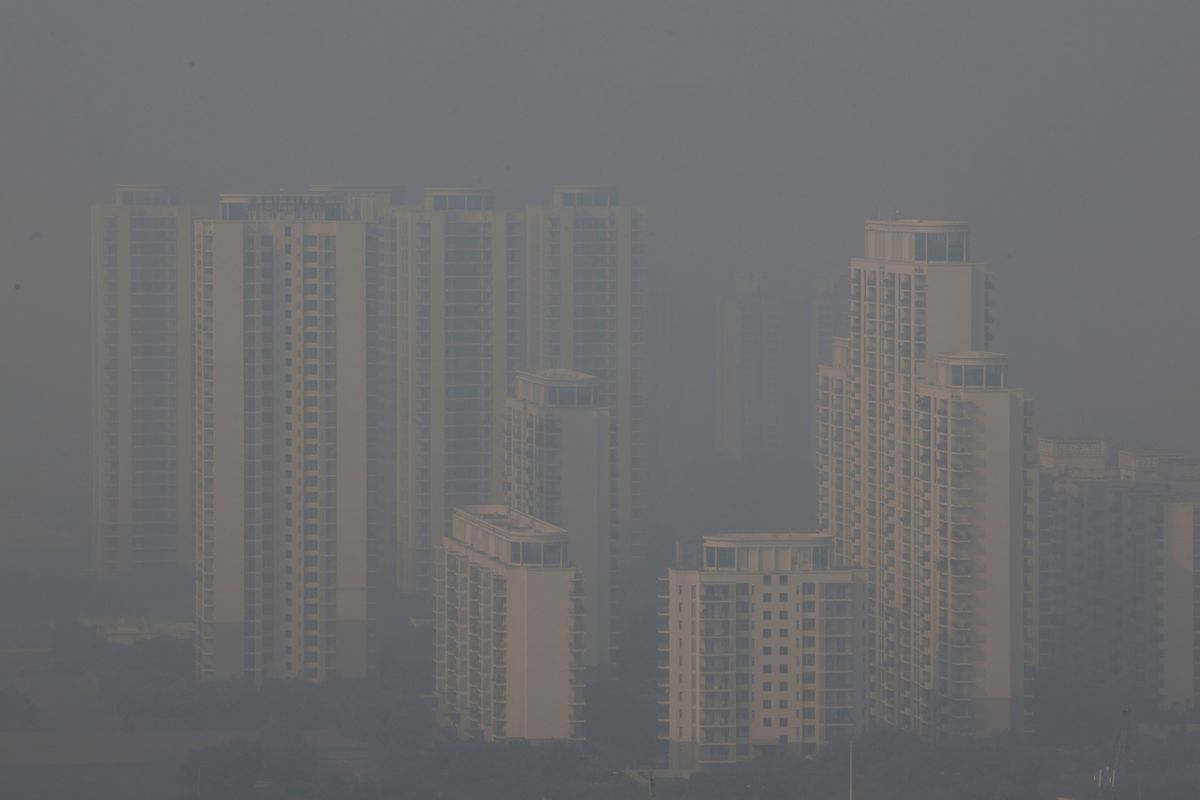Strict vehicle restrictions ordered by court in smog-choked Delhi
AFP
News Agency Partner
AFP is a renowned international news agency, delivering comprehensive and reliable reporting on global events, trends, and issues.

High-rise residential buildings are enveloped in smog due to air pollution in Gurugram, Indi
Reuters
On Friday, India's top court ordered authorities in the smog-choked capital New Delhi to establish checkpoints on all 113 roads into the city to stop the entry of polluting vehicles.
The traffic-clogged megacity of more than 30 million people has been wreathed in poisonous smog this month, with pollution levels surging more than 60 times the World Health Organization's recommended daily limit earlier this week.
Delhi authorities have launched several piecemeal initiatives to tackle what has become an annual public health crisis each winter, with little success.
One measure currently in effect bans the entry of diesel-powered trucks and other commercial vehicles -- a policy the Supreme Court said was not being adequately enforced.
"So far as compliance is concerned, we are not satisfied," the court said, according to the Indian legal news website Livelaw.
An official appointed by the court told the judges that only 13 of the 113 entry points to the city were manned by officials, prompting a dismayed response from the bench.
"The percentage of pollution caused by these trucks is a very large percentage," the court said. "As far as entry of trucks is concerned there is no implementation."
The court directed the city's government and police "to ensure that check posts are immediately set up" at the remaining 100 road entry points to the city.
Health risks
New Delhi is regularly ranked as one of the most polluted cities in the world and is blanketed in acrid smog each year.
The pollution is primarily blamed on agricultural burning by nearby farmers to clear their fields for ploughing, as well as factories and traffic fumes.
Cooler temperatures and slow-moving winds worsen the situation by trapping deadly pollutants each winter.
A study in the Lancet medical journal attributed 1.67 million premature deaths in India to air pollution in 2019.
The Supreme Court last month ruled that clean air was a fundamental human right, ordering both the central government and state-level authorities to take more decisive action.










Comments
See what people are discussing